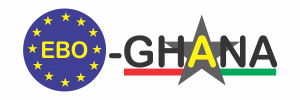ECOWAS TRADE NOT DEVELOPED BECAUSE OF TOO MANY BARRIERS

Commissioner for Infrastructure at the ECOWAS Commission, Dr. Antoinette G. Weeks, has said the corridors of the sub-region are riddled with too many physical and soft barriers which are a draw back on the integration agenda.
“Our existing transport corridors are currently not adequately supporting intra-regional trade and free movement. Our corridors are riddled with too many physical and soft barriers, which is unwelcoming to the Regional Integration Agenda of the ECOWAS Community.
The ECOWAS Commission believes that it is our collective responsibility as individuals appointed by our governments to do our part in making significant improvements in advancing the region’s transport and trade sectors,” she said.
Speaking at a workshop in Accra, she said bad transport networks within the sub-region are affecting intra-regional trade and free movement. This, she said, demands a collective responsibility by all to improve the region’s transport and trade sectors.
In 2005, the ECOWAS authority adopted a decision that established an institutional framework to ensure the smooth flow of goods and persons through an efficient transport network of road corridors across the sub-region, but after more than 12 years, the implementation of this institutional framework has registered some very meager achievements, with the region’s road corridors still suffering from enormous inefficiencies and obstacles in terms of supporting community trade as compared to other regional economic communities on the continent.
To address these problems, the ECOWAS Commission (supported by USAID) initiated a study to review the West Africa experience and develop a strategy and action plan for the achievement of corridor management and development goals that take into account lessons learned from international experience.
These institutions will be players in improving transport network operations, trade and transport facilitation, free movement of persons and security. It will also foster economic and social development along the corridors and support internal and external trade in West Africa.
The study has reached an advanced stage as field work has been carried out in eight ECOWAS member states to review current conditions and performance of interstate corridors, corridor-related constraints faced by businesses in generating economic development and experience with existing corridor institutions.

